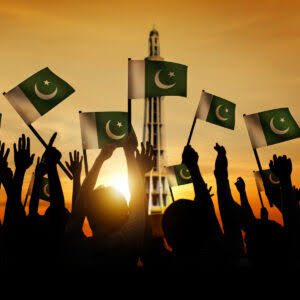Pakistan Resolution Day, also known as Pakistan Day, is a significant occasion in the history of Pakistan. It is celebrated annually on March 23 to commemorate the historic Lahore Resolution passed on this day in 1940. The resolution paved the way for the creation of an independent Muslim state in the Indian subcontinent. This year, as the nation celebrates its 83rd Pakistan Day, there is an urgent need for unity among the people to build a strong and prosperous Pakistan.
The Lahore Resolution, also called the Pakistan Resolution, was a momentous event in the struggle for the independence of Muslims from British colonial rule. The resolution was adopted by the All-India Muslim League at its annual session in Lahore. It called for the creation of an independent Muslim state in the northwestern and eastern regions of British India, where Muslims constituted a majority. The resolution was a response to the Congress’s demand for a united India, which the Muslim League believed would lead to the marginalization of Muslims.
The Lahore Resolution galvanized the Muslims of India and paved the way for the creation of Pakistan seven years later. Pakistan was born on August 14, 1947, as a result of a long and arduous struggle led by visionary leaders such as Quaid-e-Azam Mohammad Ali Jinnah, Allama Iqbal, Liaquat Ali Khan, and others.
On Pakistan Resolution Day, the nation pays homage to these leaders and the countless men and women who fought for the creation of Pakistan. It is a day to celebrate the spirit of freedom, unity, and resilience that inspired the Muslims of India to carve out their own destiny.
However, as Pakistan enters its 74th year of independence, it faces numerous challenges. The country is grappling with economic, political, social, and security issues that threaten its stability and progress. These challenges require a united and concerted effort from all segments of society to overcome them.
One of the biggest challenges facing Pakistan is the issue of sectarianism, which has been a source of conflict and violence for decades. Sectarianism refers to the division of Muslims into different sects, each with its own religious beliefs and practices. This division has led to sectarian violence, which has claimed thousands of lives over the years. It is imperative that Pakistanis set aside their sectarian differences and work towards a more tolerant and inclusive society.
Another challenge facing Pakistan is the issue of corruption and political leaders working for personal interests, which has plagued the country’s political and economic systems. Corruption undermines the rule of law, erodes public trust, and impedes economic growth. It is essential that Pakistanis demand transparency and accountability from their leaders who have ruined the national fabric of Pakistan. Today reminds the resilience of our forefathers and a new opportunity for all of us to chip in with our best efforts for the development & progress of Pakistan.


